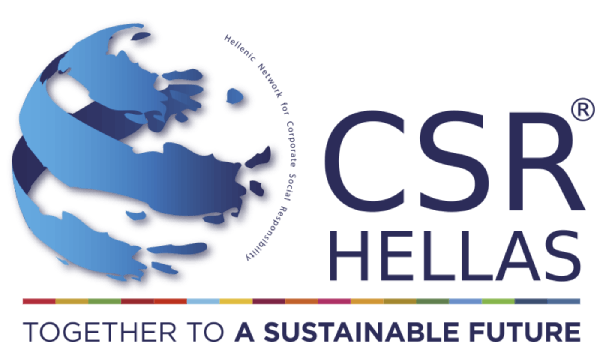CSR HELLAS is participating for yet another year in the European SDG Summit (11-14 October 2021), during which it is co-organizing a European webinar titled “Innovation through Diversity & Inclusion”.
The roundtable discussion is co-organized by CSR HELLAS, CSR Europe and the two National Partner Organizations (NPOs) BITCI (Ireland) and HR BCSD (Croatia). The aim of the event is to offer a holistic approach to the value of creating a diverse, inclusive work environment where diversity, equity and inclusion become primary business goals.
The detailed concept note of the roundtable is available below:
| The notions of Diversity, Equity and Inclusion (DEI) have long existed in corporate rhetoric, but the multidimensional significance of their prioritization within business strategy is becoming all the more clear in the final decade towards achieving the UN Sustainable Development Goals. Apart from the commonly recognized notion that development and investment in diverse and inclusive businesses is the fair route forward, it is increasingly revealed that such a route also presents substantial business potential for growth, acceleration and innovation. The wider the range of talent, the greater the breadth of knowledge, ideas, and life experiences that can move the company forward in new and creative ways. According to the World Economic Forum (DEIToolkit, 2020), well-managed diverse teams significantly outperform homogenous ones over time across profitability, innovation, decision-making, and employee engagement. Of particular interest is the finding that leading companies in the field of DEI within their geographic area revealed up to 20% higher rate of innovation and 19% higher innovation revenues. Additionally, in the case of gender diversity, recent findings of the McKinsey Global Institute show that gender equality in the workplace could add US$ 28 trillion to the global economy by 2025 (McKinsey Global Institute, 2020).
Particularly in the context of the COVID-19 pandemic, the discrepancies between the opportunities enjoyed by different societal groups have come to the surface, and even been exacerbated, as the adverse effects of the global health crisis are not evenly felt across society. In the example of gender equality, the World Economic Forum’s Global Gender Gap Report 2021 has demonstrated that due to the COVID-19 pandemic, new barriers have arisen in building inclusive and prosperous economies and societies, while pre-existing gender gaps are magnifying the gender asymmetry. The dimension of generational engagement has also been pushed to the surface recently. Age diversity needs to be taken into account in the Fourth Industrial Revolution, a process accelerated by the pandemic, during which the lines between individuals, workplaces and technology are continuously blurred. Additionally, the exclusion of ethnic minorities is a rising issue, particularly in Europe and other regions where the phenomena of demographic change and ageing populations are seriously affecting local economies and businesses. It is more than urgent to understand and enforce innovative solutions to encourage multicultural and multiethnic cooperation along with generational alliances for inclusive workplaces and societies in the European Union and beyond. OECD research (2020) has demonstrated that openness towards different minority groups, that is women, ethnic minorities and older generations, to name a few, are closely interlinked and cannot be observed in a vacuum. To that end, this roundtable will provide a holistic approach to the issue of DEI, presenting the near future goals for dealing with pre-existing structural and social inequities and investing in inclusion strategies, enlightening businesses on the steps needed in order to meet these goals, demonstrating through concrete examples how the concepts of DEI translate into practice on the European playing field in its different dimensions, and finally showing how diverse companies and inclusive employers can achieve innovation and creativity moving forward. This roundtable will primarily address high-level business executives, HR managers and other employees, while also providing interesting insight to representatives of the public sector, academia and NGOs. |
